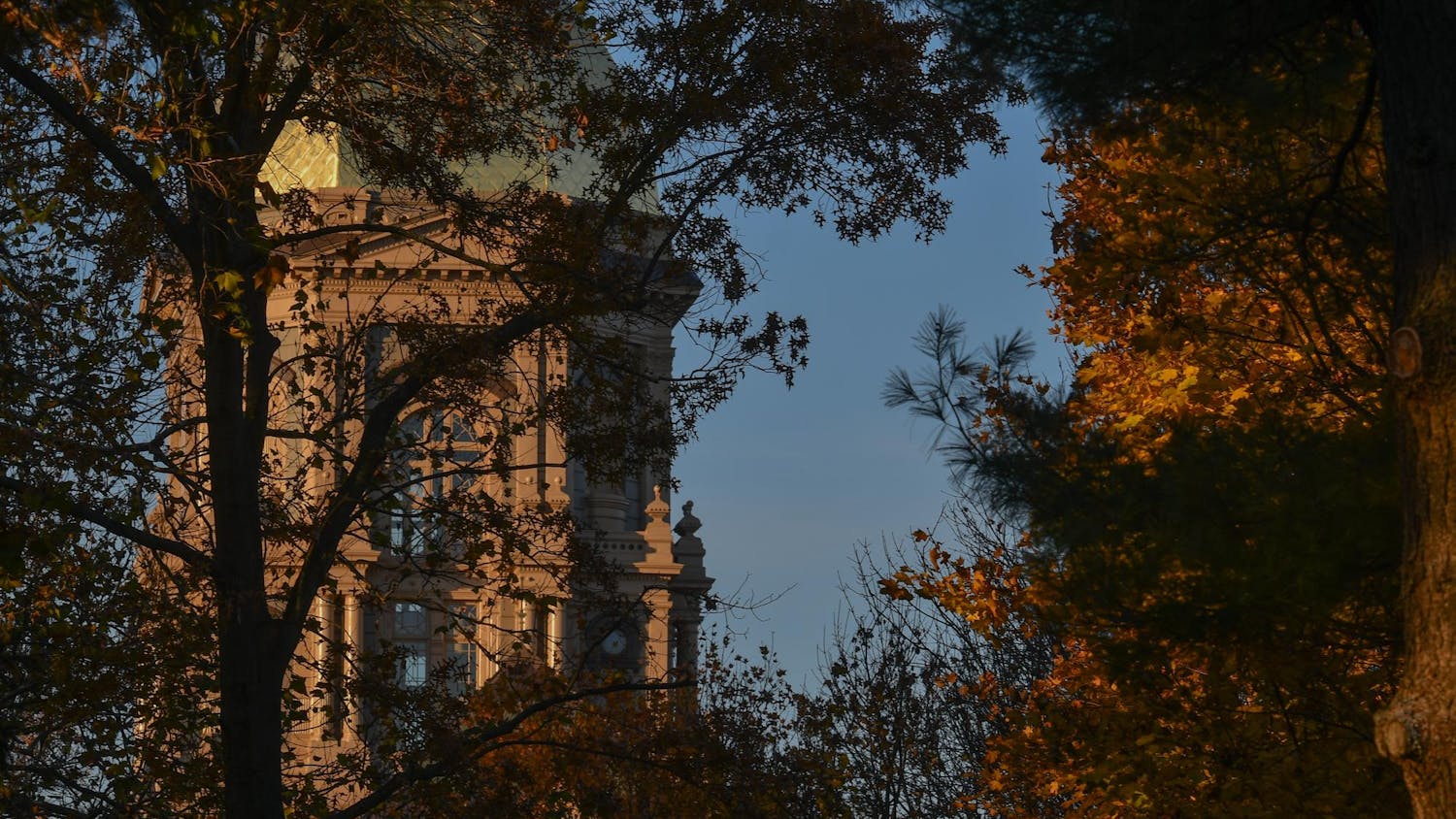Bustling with hundreds of students, residence halls at Notre Dame are usually distinguished for their distinct senses of community. What’s less discussed, however, are the few yearly returning members not typically associated with dorm life.
In an effort to foster more interaction between students and faculty, the Division of Student Affairs launched a faculty-in-residence program in 2013. Participating faculty members live with their spouses in student residence halls and are encouraged to engage with the dorm community.
John Deak, an associate professor of history, and his wife Karen Deak, academic advancement director for research innovation and the IDEA Center, have been living in Dunne Hall for four years.
The couple tries to stay involved in the Dunne community, Karen said. This includes helping to organize food sales in Dunne Hall and establishing Dunne’s student-run restaurant, “Pizza Dunne Right.” The couple has also assisted with the annual Dunne Fun Run.
“Because neither of us are alumni, we didn’t fully understand the Notre Dame student experience so it was very helpful to learn what the students’ lives are like,” Karen said.
John said the experience has changed his understanding of student life outside the classroom.
“I think some of the faculty think students drink too much, party too much and don’t study enough,” he said. “There’s this perception that students are less mentally fit than they used to be. Living with them [and] seeing how hard our students work, how much they really study and how much pressure they put on themselves has changed my perspective on how to teach students well. It’s helped me be an advocate for them as well as [be] more sympathetic in the classroom.”
Ed Hums, a professor of accountancy in the Mendoza College of Business, and his wife Shirley Hums, an IT support associate, have been living in Lyons Hall for six years.
“We feel we are an integral part of the community — of the campus as a whole, but especially in Lyons,” Ed said. “We try to socialize and get together with the girls as much as we can.”

The couple sponsors several hall events, including Pancakes in the Lair, Welcome Weekend ice cream socials, trivia nights and cooking and baking parties. Additionally, the duo holds a speaker series and hosts a spring trip to the Art Institute of Chicago.
The Hums also attend the Lyons Hall dances, where Shirley said they learn a lot of new pop music.
“However, they always save a slow dance for us — last year it was ‘Can’t Help Falling in Love’ by Elvis,” she said.
The faculty in the dorms also strive to be a source of guidance for the students in the hall.
“We come through the common area to see who’s studying and have a talk with the girls,” Shirley said. “We tell them to get an extra hour of rest because you have to take care of yourself — you can’t burn out studying. We try to make sure the girls stay healthy.”
Ed also offers academic advice to the residents of Lyons. He said young students sometimes need folks with gray hair to visit and talk.
“It’s tricky trying to fit in their lives in meaningful ways, so part of what we do is just be there for them,” John said. “When the anxiety spikes, they know they have someone to talk to. You can’t expect a professor to answer an email at 9:00 at night, but that’s when our door is open.”
Most of the week, Shirley said, it’s quiet in the dorms — other than a few rowdy days.
“On Saturday night or a Friday before a football [game], you’re going to get excited,” Shirley said. “So we grin and bear it because you got to have fun with your friends. It’s probably not for everyone, being surrounded by teenagers all the time, but it keeps us young.”
For Ed, the faculty-in-residence program holds an especially significant meaning given his history with the University.
“It’s very special because I came to Notre Dame in 1971 and lived at home because I couldn’t afford room and board,” Ed said. “I never thought that I’d live at Notre Dame. Well, guess what? Now I do.”
‘It keeps us young’: Faculty-in-residence discuss living with students on campus
Accounting professor Ed Hums and his wife, Shirley, an IT support associate, live in Lyons Hall through the Faculty-in-Residence program.









